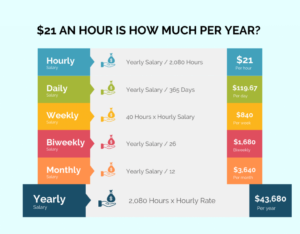Smart Moves Before You MoSmart Moves Before You Move: A Look at Pre-Immigration Tax Planning
Immigrating to a new country brings with it many exciting possibilities—but also new financial and tax responsibilities. One crucial yet often overlooked step in the relocation process is pre-immigration tax planning. Whether you’re heading to the U.S., Canada, Australia, or any other country, strategic tax planning before your move can significantly reduce your tax burden and help you manage your wealth more efficiently.
Let’s dive into what pre-immigration tax planning involves, why it’s important, and how you can make the most of it.
What is Pre-Immigration Tax Planning?
The pre-immigration tax planning refers to financial and legal strategies implemented before a person becomes a tax resident of a new country. The objective is to review your global income, investments, and assets in order to structure them in a way that minimizes future taxation and ensures compliance with the tax laws of the destination country.
Each country has its own rules for determining tax residency and for taxing foreign income, capital gains, inheritance, and trusts. Without adequate planning, new immigrants could find themselves facing unexpected tax liabilities on assets they accumulated before even arriving in the new country.
Why is It Important?
Failing to plan your taxes before moving can lead to several issues:
- Tax on Worldwide Income: Once you become a resident, most countries will tax you on global income—not just what you earn within their borders.
- Capital Gains Taxes: Appreciated assets like property or shares can be subject to capital gains tax if sold after you immigrate.
- Reporting Requirements: You may have to declare foreign assets, bank accounts, or trusts, leading to potential penalties for non-compliance.
- Double Taxation: Without proper structuring, you may end up being taxed twice—once in your home country and again in the new one.
Pre-immigration tax planning helps avoid these pitfalls by positioning your finances wisely before you arrive.
Key Areas of Pre-Immigration Tax Planning
1. Determining Tax Residency
Each country has its own criteria for determining when a person becomes a tax resident. This could be based on the number of days spent in the country, ties to the community, or formal immigration status. Understanding when your tax liability begins is the first step in your planning.
2. Asset Review and Restructuring
Go through your portfolio—real estate, stocks, mutual funds, bank accounts, business interests, and other investments. Consider:
- Selling appreciated assets to lock in gains before immigration
- Gifting assets to family members
- Setting up trusts to separate legal ownership
- Consolidating or closing offshore bank accounts
3. Income Acceleration or Deferral
If you expect a spike in income (like a bonus, dividend, or business income), you may choose to accelerate that income to receive it before becoming a resident. On the other hand, if your destination country has favorable tax treaties or deductions, it might be better to defer certain income until after immigration.
4. Tax on Passive Income
Interest, dividends, and rent from foreign sources may be taxed differently in your new country. It might be advantageous to:
- Reinvest dividends before moving
- Pay off debts to minimize taxable interest income
- Restructure real estate holdings
5. Trusts and Inheritance Planning
Some countries treat foreign trusts unfavorably, imposing high taxes or complex reporting requirements. It may be better to dissolve or restructure trusts before moving. Additionally, countries like the U.S. have estate and gift tax rules that can significantly affect wealth transfer plans.
Countries with Notable Tax Considerations
- United States: Taxes citizens and residents on worldwide income. It also has strict reporting requirements for foreign accounts (FBAR, FATCA).
- Canada: Taxes residents on worldwide income from the date of residency. Offers a “deemed acquisition” benefit where assets are valued at fair market value upon entry.
- UK: Offers a “remittance basis” for certain non-domiciled residents to defer tax on foreign income, but rules are complex.
Work with a Tax Advisor
The rules of international tax can be complicated and are constantly changing. Working with an experienced cross-border tax advisor is essential. They can help you:
- Understand the destination country’s tax laws
- Optimize your financial structures
- Comply with reporting obligations
- Avoid penalties and double taxation
Final Thoughts
Relocating to a new country is a major life decision—and one that requires detailed financial preparation. Pre-immigration tax planning is not just for the wealthy; it’s for anyone looking to protect their assets, reduce tax exposure, and stay compliant with the law. Start early, consult professionals, and enter your new country with peace of mind.




